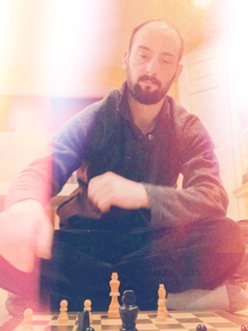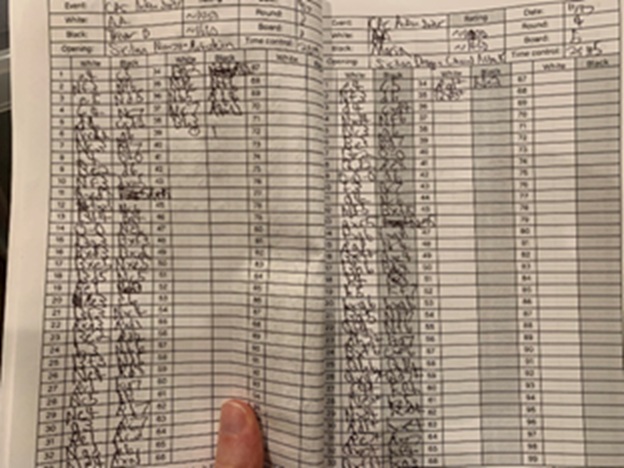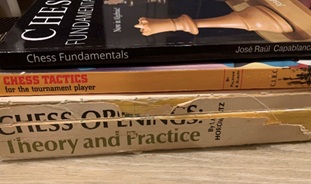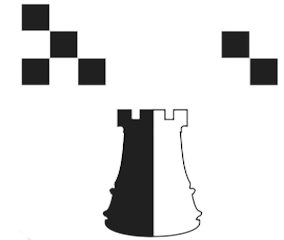“Chess is not for timid souls.” – Wilhelm Steinitz
I recently played for the first time in historic Washington, D.C. It was a 4-round Swiss tournament hosted at Capital Pool Checkers, in the vibrant Adams Morgan district. Next time, I will definitely snap a picture, because wow what a cool place! I had the opportunity to play players much higher rated than myself and finished with 2 points. I returned home pleased with the diverse set of games I had played, a lesson in each one, and I met many interesting people there that made the experience even more enjoyable.

Every tournament game I record in my notation book. When I have time, I sit down and go over my games alone.

This is an exercise not just in critical thinking or puzzle solving but it is a meditation on both my own and my opponent’s mistakes. It’s important to stay relaxed and objective. Sometimes, my own mistakes feel like they hit my soul, and I just want to tear my heart out. Rather than condemning myself, I choose to help myself, by showing a better move. After my own reflection, I store my games in the Stockfish app, making it easy to review them later with a peer or mentor for deeper insights. I don’t suggest delving deep into Stockfish. Imagine if there was a +/- on every decision we made. How could we live with ourselves?
Separate from my own games, I also spend time over the board in preparation for the next tournament with chess books. I used to focus on learning openings but I’ve realized that practicing tactics and fundamentals is more important for becoming a real chess player, not a mechanical one.

I keep this old chess openings tome around because it represents an illustrious history of chess. It’s neat but it won’t help me become a better chess player when I fill my mind with rote moves and memorized lines, training myself to play a pattern-matching game rather than real chess.
While my posts so far have been introspective and personal in nature, expect my next one to be quite different! I hope these have encouraged readers to develop good habits and be more conscientious about their chess. “Chess, like love, like music, has the power to make men happy.” – Tarrasch
